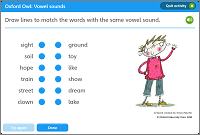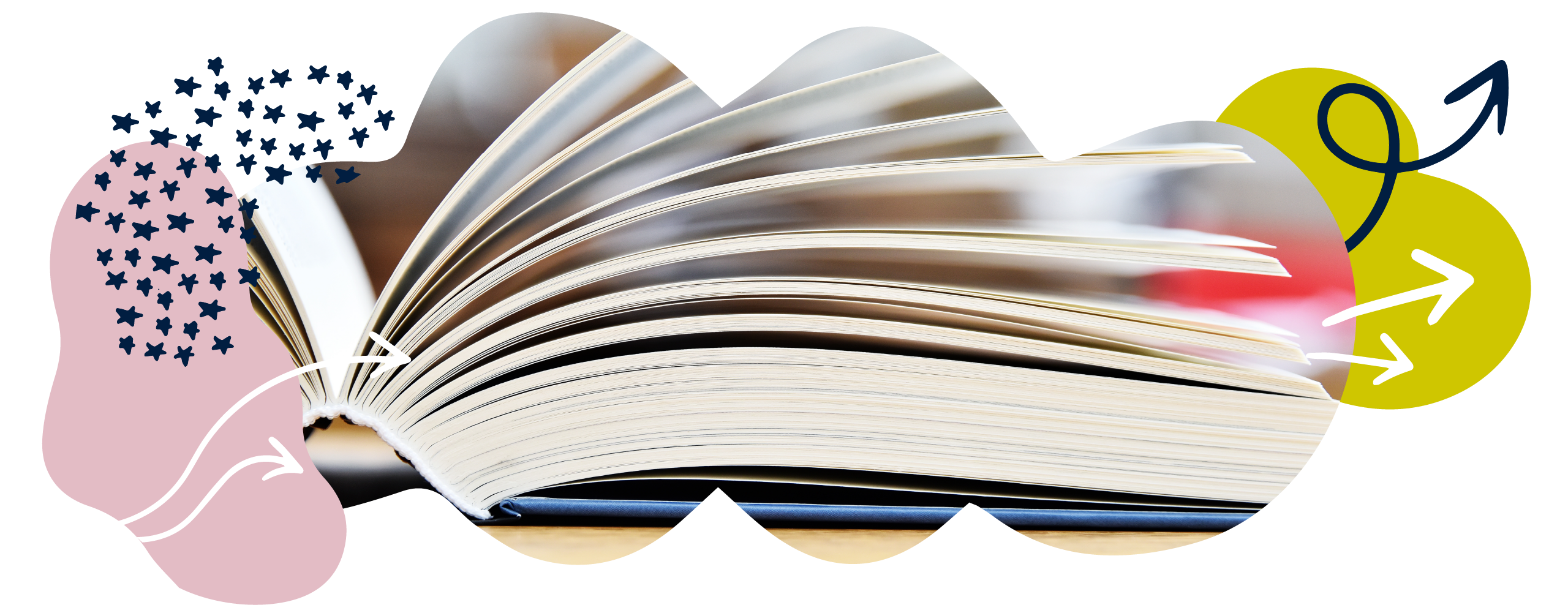Grammar and literacy glossary: T to Z
Need a refresher on fronted adverbials or the passive voice? Get to know what your child is learning at school with our guide to common terms and phrases used in schools.
For help with general educational terms, take a look at the Education glossary.
For help with maths terms, take a look at the Maths glossary.
A | B | C | D | E | F | G | H | I | J | K | L | M | N | O | P | Q | R | S | T | U | V | W | X | Y | Z
Tense
The verb in a sentence shows the tense. It shows when something happens.
The present tense shows that something is happening now or is true now.
The bird likes apples and often pecks them to see if they are good.
The present tense is also used to show something is going to happen (or about to happen) in the future.
I start school next year.
(Also see Progressive.)
The past tense is used to describe something that has happened. The past tense is normally shown by adding –ed but some verbs change completely.
The bird pecked the apple.
I went to the cinema.
The past tense is also used to talk about a situation that is imagined or wished for.
If we left now, we’d be able to watch the match on TV.
I wish I had a dog.
Video: Verbs and tenses
Learn about irregular, modal and imperative verbs and the past, present, and future tense.
Tricky words
In some English words, the spelling of the word doesn’t appear to fit with the phonemes that children have been taught so far. These words are taught as whole words rather than as a combination of sounds.
Tricky words include the, go, said, my, he.
They are also sometimes known as ‘red words’ or ‘exception words‘.
Verb
A verb often names an action but it can also describe feelings or states.
The bird pecks the apple and eats it. The bird is happy.
The most basic form of a verb is called the infinitive. Tenses are formed by inflecting the infinitive.
Regular verb: Regular verbs change their endings in predictable ways. In the present tense, most verbs add an -s in their third person form.
I run, she runs.
The suffix -ed is added to form the past tense.
I shout, we shouted.
The suffix –ing is added to form participles.
I listen, she is listening, we were listening, they will be listening.
Irregular verb: Irregular verbs have varied forms, especially in the past tense.
We swim, we swam, we have swum; you take, you took, you have taken.
Video: Verbs and tenses
Learn about irregular, modal and imperative verbs and the past, present, and future tense.
Vowel
Vowels are sounds represented by the following letters: ‘a’, ‘e’, ‘i’, ‘o’, ‘u’ and sometimes ‘y’. All other sounds are called consonants and are represented by the other letters in the alphabet, which are called consonant letters.
Activity: Vowel sounds

Draw lines to match the words with the same vowel sound.
